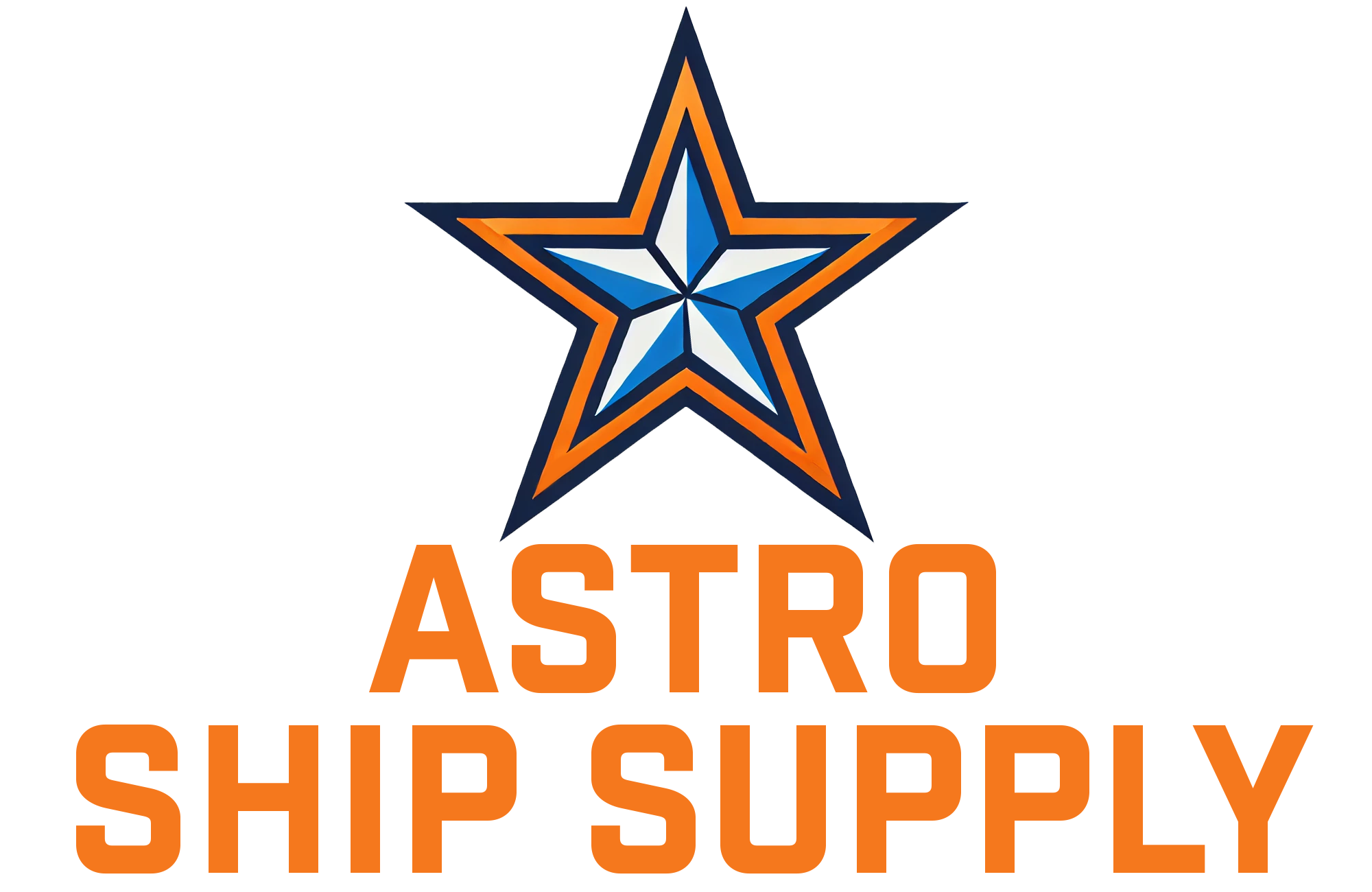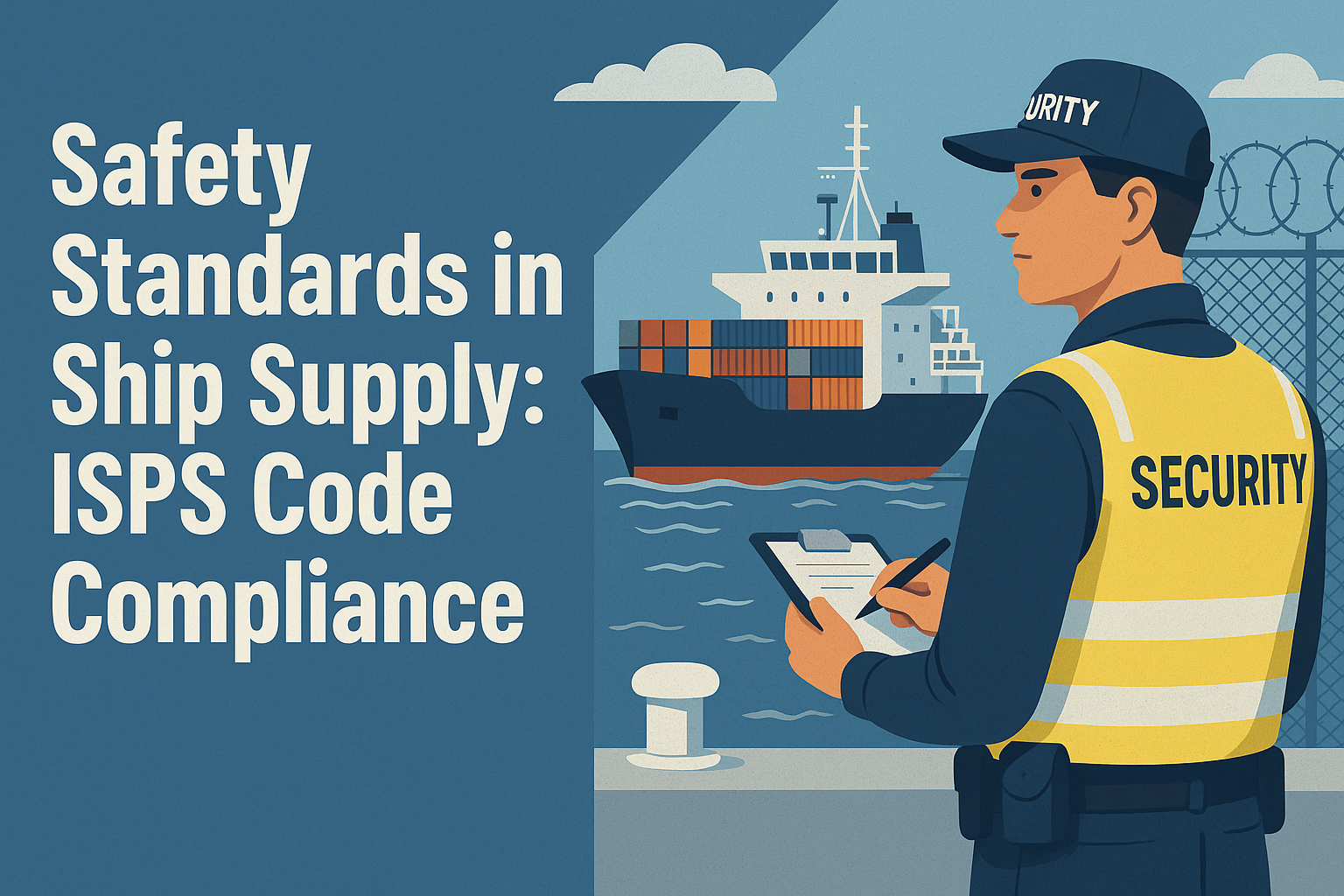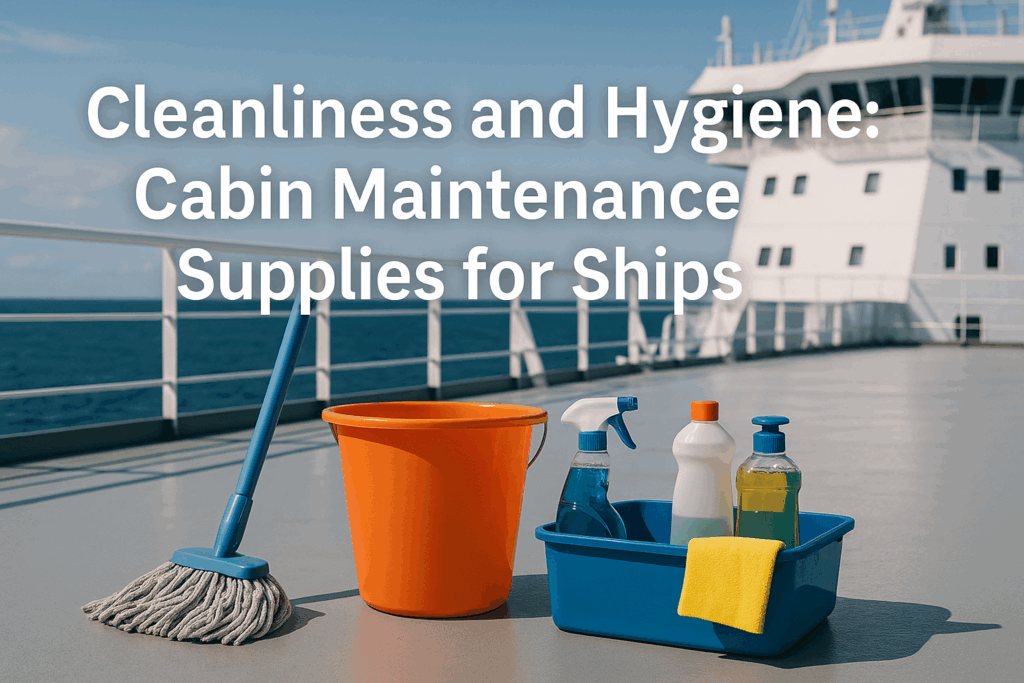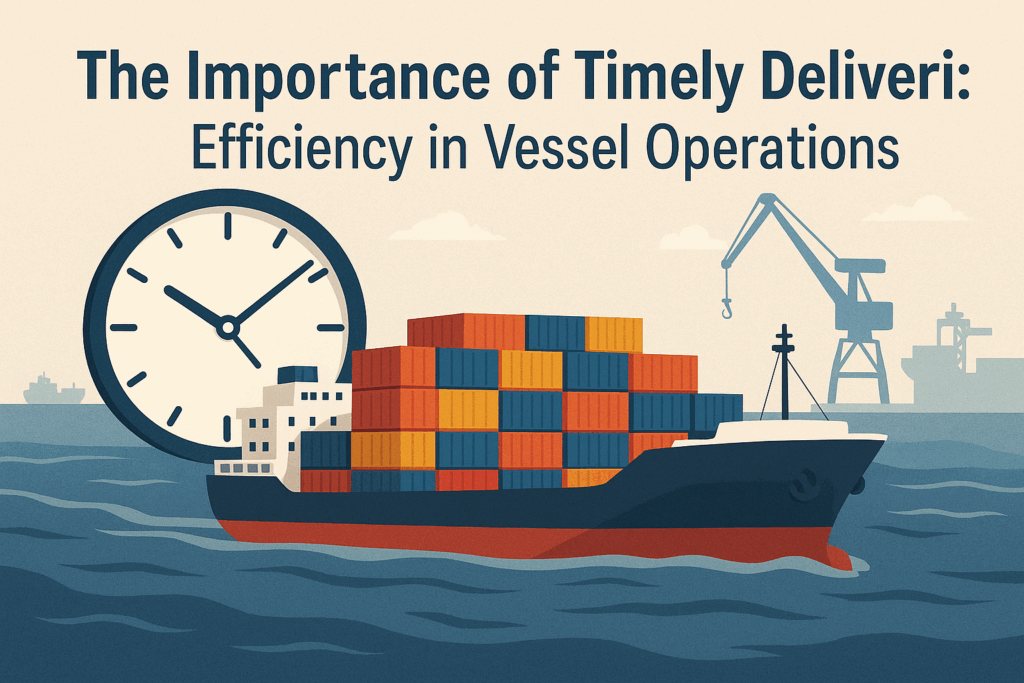Securing the Chain: Why ISPS Code Compliance is Non-Negotiable for Your Ship Chandler
In today’s interconnected maritime world, security isn’t just a buzzword; it’s a fundamental operational imperative. The sheer volume of goods and personnel moving through ports like Houston presents inherent vulnerabilities. Recognizing this, the global maritime community implemented stringent measures to protect ships and port facilities from security threats. Chief among these is the International Ship and Port Facility Security (ISPS) Code. While often associated directly with vessels and terminals, the ISPS Code casts a wider net, encompassing every entity that interacts within these secure zones – including your ship chandler. Partnering with a supplier like Astro Ship Supply, who not only understands but rigorously adheres to ISPS standards, isn’t just good practice; it’s essential for maintaining security, ensuring compliance, and achieving operational efficiency.
Think about the access required to deliver provisions, spares, or stores directly to a vessel or quayside. Suppliers and their vehicles must navigate restricted areas, interact with vessel crews, and handle goods that will enter the ship’s secure environment. This makes the ship chandler a critical link in the port security chain. Failure to uphold ISPS standards by a supplier can lead to delays, access denial, regulatory penalties, and potentially compromise the security of the entire operation.
Decoding ISPS: A Primer for Maritime Stakeholders
Understanding the ISPS Code is crucial for appreciating why your supplier’s compliance matters so profoundly.
H3: What is the ISPS Code and Why Was It Created?
Developed by the International Maritime Organization (IMO) in response to heightened global security concerns (particularly post-9/11), the ISPS Code entered into force in 2004. Its primary objectives are:
- To establish an international framework for cooperation between governments, agencies, and the shipping/port industries to detect and assess security threats.
- To define clear roles and responsibilities for all parties involved in maritime security.
- To ensure the collation and exchange of security-related information.
- To provide a methodology for security assessments and plans (SSP for ships, PFSP for port facilities).
- To guarantee that adequate security measures are in place onboard ships and within port facilities.
Crucially, the ISPS Code is mandatory for signatory states and applies to specific vessel types on international voyages and the port facilities that serve them.
H3: Key ISPS Concepts: PFSP, PFSO, and Security Levels
Several core elements define ISPS operations:
- Port Facility Security Plan (PFSP): A detailed plan developed by each regulated port facility, outlining the specific security measures to be implemented at different security levels. Ship suppliers must operate in accordance with the relevant PFSP.
- Port Facility Security Officer (PFSO): The individual designated by the port facility responsible for the development, implementation, revision, and maintenance of the PFSP and for liaison with Ship Security Officers (SSOs) and Company Security Officers (CSOs). Suppliers often coordinate access and deliveries through the PFSO or their designees.
- Security Levels (1, 2, 3): These dictate the stringency of security measures required:
- Level 1 (Normal): Standard, routine protective security measures are maintained at all times.
- Level 2 (Heightened): Additional protective measures are maintained for a period of time as a result of a heightened risk of a security incident. This might involve increased checks, restricted access, etc.
- Level 3 (Exceptional): Further specific protective measures are maintained for a limited period when a security incident is probable or imminent. This involves the highest level of security.
A compliant ship chandler understands these concepts and adapts their procedures accordingly.
The Supplier’s Security Duty: Integrating Chandlery into the ISPS Framework
Ship chandlers are not passive participants; they have active responsibilities under the ISPS Code and the port facility plans they operate within.
H3: Accessing Secure Zones: A Position of Trust
The fundamental role of a chandler involves entering restricted areas governed by the PFSP. This includes terminal gates, quaysides, and sometimes direct access to the vessel gangway or deck. This privileged access necessitates strict adherence to security protocols to prevent unauthorized individuals, vehicles, or items from breaching the security perimeter.
H3: Concrete ISPS Responsibilities for Ship Suppliers
An ISPS-compliant ship supplier like Astro Ship Supply integrates specific security measures into their daily operations:
- Personnel Identification & Vetting: Ensuring all personnel possess valid identification (e.g., TWIC in the US).
- Vehicle Identification & Screening: Using marked vehicles and complying with port screening requirements.
- Pre-Arrival Notification & Coordination: Providing advance notice as required by the PFSP.
- Adherence to PFSP Procedures: Strictly following port facility rules (routes, access points, etc.).
- Secure Handling & Chain of Custody: Protecting stores from tampering during transit.
- Security Awareness & Reporting: Training staff to report suspicious activity immediately.
These aren’t optional extras; they are integral to maintaining the integrity of the maritime security system.
ISPS Compliance in Action: Astro Ship Supply’s Approach
How do these responsibilities translate into practice? Here are typical scenarios handled with ISPS compliance at the forefront:
H3: Scenario 1: Routine Delivery (Security Level 1)
Astro receives an order for provisions and bonded stores. Our process involves: pre-arrival notification (driver/vehicle details), secure goods preparation, arrival with valid TWIC/ID, proceeding via approved routes, coordinating secure handover with the vessel, and obtaining confirmation. Efficiency and compliance work together.
H3: Scenario 2: Heightened Security Delivery (Level 2)
If the port security level is raised to 2, Astro adjusts: allowing extra time for checks, potentially undergoing more thorough searches, requiring escorts if mandated, using specific delivery points, and ensuring personnel are briefed and vigilant.
H3: Scenario 3: Managing Sensitive Deliveries
Delivering items needing special handling involves precise manifests, secure/tamper-evident packaging where needed, and strict handover protocols, maintaining a clear, documented chain of custody.
Our experience ensures we navigate these scenarios smoothly, without compromising security or causing unnecessary delays.
Compliant vs. Non-Compliant Suppliers: A Security & Efficiency Comparison
Choosing a supplier based solely on price without considering their ISPS compliance is a significant risk. This table highlights the stark differences:
| Aspect | ISPS-Compliant Supplier (e.g., Astro Ship Supply) | Non-Compliant/Careless Supplier |
|---|---|---|
| Port Access | Smooth entry via proper ID (e.g., TWIC), pre-notification, adherence to PFSP. | Access denied or significantly delayed (lack of ID/notification/knowledge). |
| Delivery Timeliness | Generally on schedule, coordinated. | High risk of delays due to security holds. Potential demurrage. |
| Vessel/Port Security | Actively contributes to security (vetting, screening, vigilance). | Potential security weak link; risk of prohibited items/access. |
| Regulatory Standing | Operates within requirements. Helps operator show due diligence. | Risk of breaches, fines, negative impact on vessel/operator. |
| Reputation | Reliable, trustworthy, professional. | Unreliable, unprofessional, risky. |
| Chain of Custody | Secure handling minimizes tampering risk. | Lax procedures increase risk. |
The choice directly impacts security, efficiency, and compliance.
Key Benefits of an ISPS-Compliant Ship Chandler
Partnering with a demonstrably ISPS-compliant supplier like Astro Ship Supply offers tangible advantages:
- Smoother Port Operations: Reduced risk of security-related delays.
- Enhanced Security Assurance: Confidence in your supplier’s security protocols.
- Regulatory Peace of Mind: Helps ensure compliance with security mandates.
- Protection of Crew and Assets: Minimizes supply chain security risks.
- Strengthened Supply Chain Integrity: Contributes to overall port and vessel security.
- Demonstrated Due Diligence: Shows commitment to security standards.
Conclusion: Security is Everyone’s Business – Choose Your Partners Wisely
The ISPS Code is more than just regulations; it’s a framework for shared responsibility in safeguarding maritime infrastructure. Ship chandlers are pivotal, making their compliance essential. Choosing a supplier who embeds ISPS compliance into their service, like Astro Ship Supply, is vital for protecting your vessel, crew, and timelines.
At Astro Ship Supply, ISPS compliance is central to our operations. We understand our role and commit to the highest standards, ensuring efficiency never compromises safety. Partner with us for reliable, quality, and secure ship supply services on the Gulf Coast. Request a quote or contact us to learn how our commitment to ISPS compliance benefits you.
Frequently Asked Questions (FAQ) about ISPS Code & Ship Supply
Is ISPS Code compliance mandatory for all ship suppliers?
While the code applies directly to ships/ports, suppliers needing access must comply with the port’s ISPS-based security plan (PFSP). Access is contingent on this, making compliance practically mandatory.
What is a TWIC card and why is it important for suppliers in the US?
The Transportation Worker Identification Credential (TWIC) is a required biometric ID for unescorted access to secure US maritime areas. Reputable suppliers ensure personnel have valid TWICs, proving they’ve passed security checks.
What happens if a supplier violates ISPS procedures?
Consequences range from access denial and delivery delays to fines for the supplier. Repeated violations can lead to barring from the port. Breaches can also have liability implications for the vessel operator.
How can I verify if a ship chandler is ISPS compliant?
Ask about their ISPS procedures, personnel vetting (TWIC usage). Check their website/documentation for mentions of compliance (like Astro Ship Supply). Inquire with agents/port authorities about their reputation. Lack of awareness is a red flag.
Does ISPS compliance slow down deliveries?
Not necessarily. A prepared, compliant supplier integrates security steps efficiently. Delays are more likely with non-compliant suppliers facing issues at checkpoints. An efficient, compliant supplier plans for security, ensuring both safety and timeliness.






